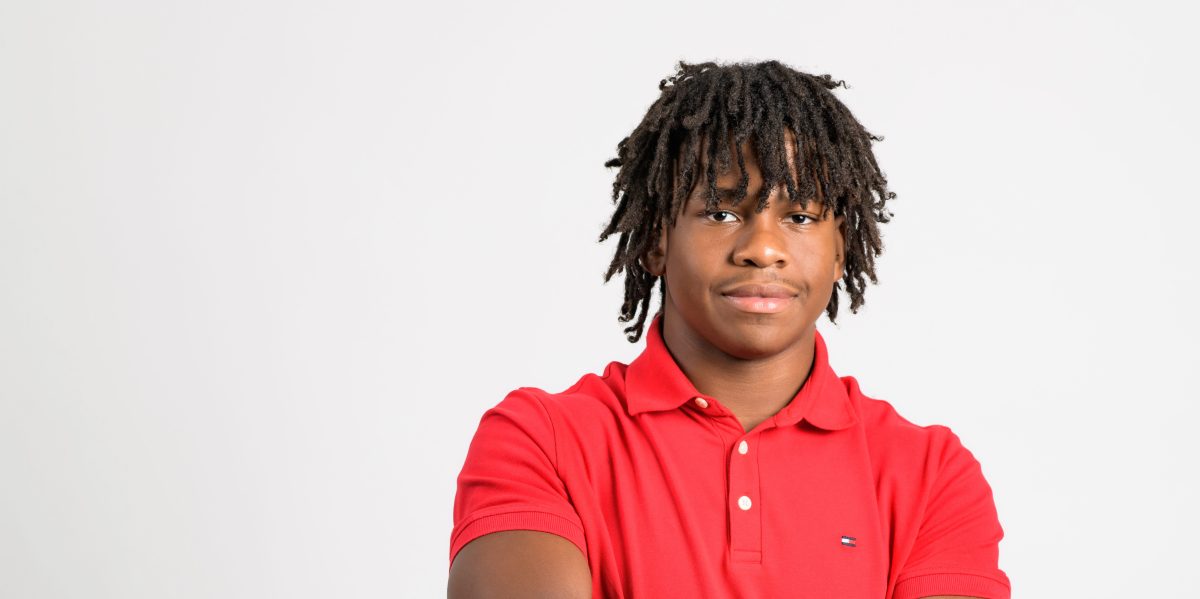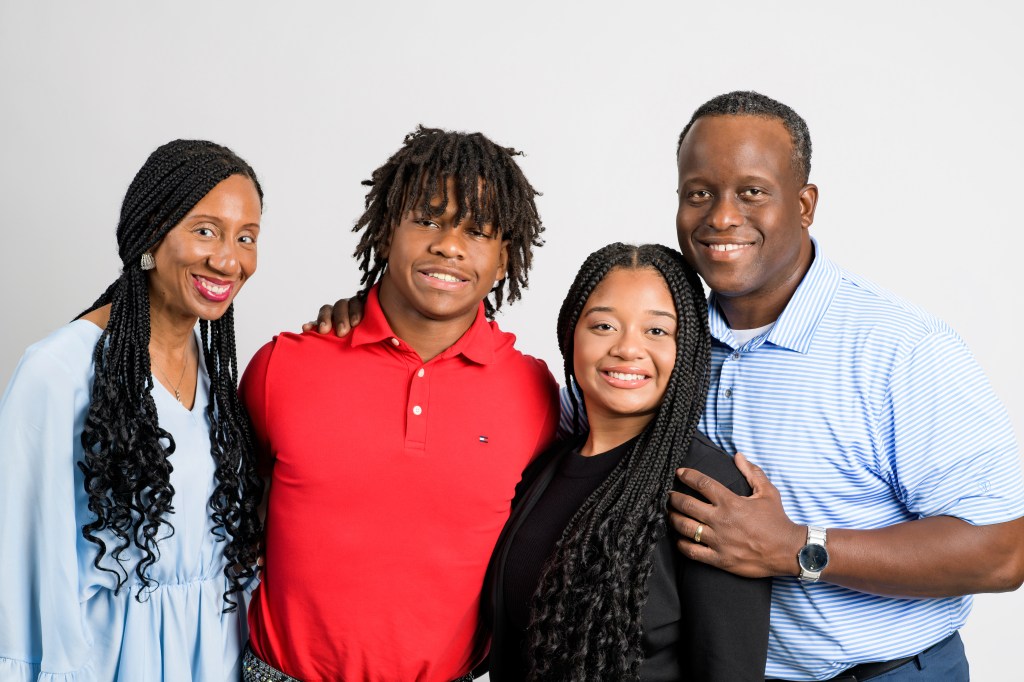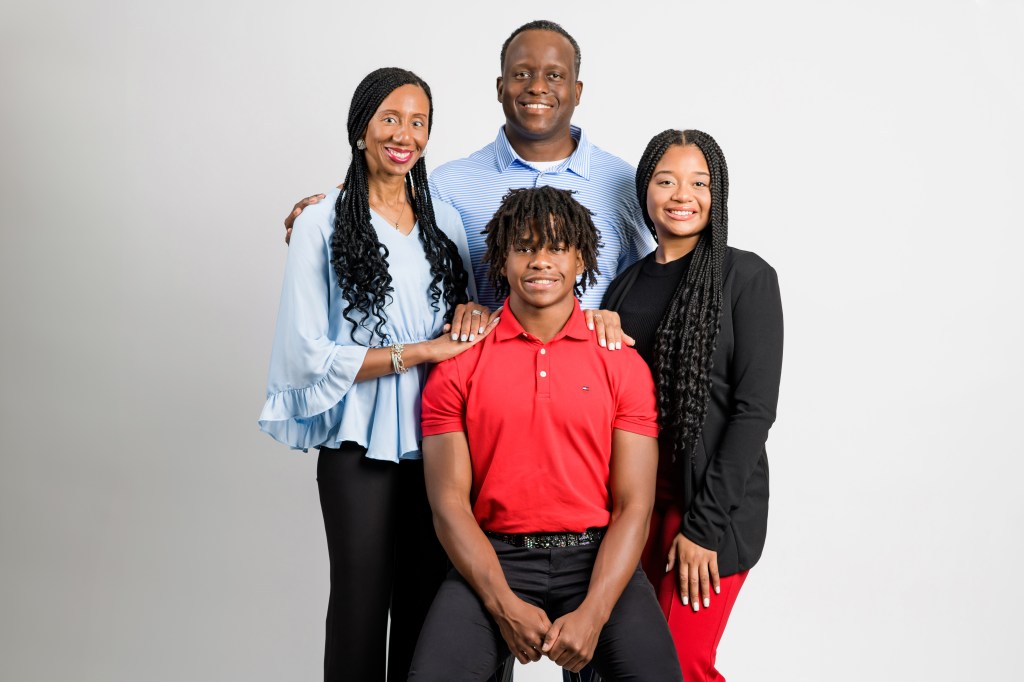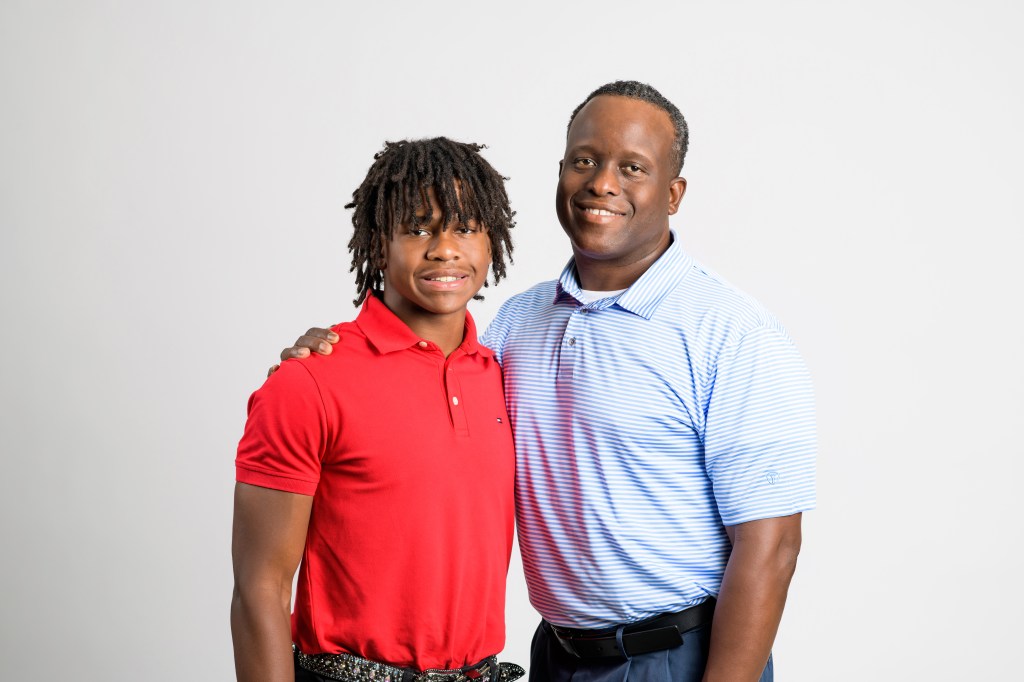
Trevor Moultrie
IRON STRONG – Difficulties do not deter us
Hometown: Birmingham, AL
Physician: Raymond Watts, MD
Cancer type: leukemia
It was a diagnosis that would shock any parent: “Your child has cancer.” Those four small words felt like four tons of weight to Terrance and Sherri Moultrie.
The Moultries first heard those words in 2007 when their 15-month-old son, Trevor, was diagnosed with acute lymphoblastic leukemia (ALL). Terrance says the immediate moments after that were a complete blur.
“When the doctor told us Trevor had leukemia, it felt like we’d hit a brick wall. It was devastating,” Terrance recalled. “I was trying to control my emotions in the room, but when I stepped out to call my family, I was just a ball of tears. I couldn’t really process what in the world was going on.”

However, it didn’t take long for the Moultries to realize that there was a positive side to the diagnosis: The remission rate has improved from barely 50% in the 1970s to as much as 96% in recent studies. That gave the Moultries hope and a reason to enroll Trevor into a clinical trial for his treatment.
“The reason the cure rate is so high now is because of the research that has been done before,” Terrance said. “My wife and I realized that we wanted Trevor to be cured and healthy, but we also wanted to have those who come behind us benefit from the research that we provided through him.”
Under the guidance of now-retired pediatric hematologist Raymond Watts, M.D., Trevor entered into an ALL clinical trial through the O’Neal Comprehensive Cancer Center. Terrance says his son experienced hair loss and moodiness, with a couple of potential setbacks. In one case, it briefly appeared that the cancer might be growing again. But after 3.5 years of aggressive treatment, Trevor was declared cancer-free. Currently he is 17 years old and a junior at Hewitt-Trussville High School.
“Trevor has beaten every challenge thrown his way pertaining to this,” Terrance said. “He’s healthy, he’s excited about life. He’s good in sports and plays football. He’s also very aware of what he went through and of the importance of giving back and trying to help other people.”
Actually, by going through the ALL clinical trial, Trevor already has helped others. According to UAB Medicine pediatric hematologist-oncologist Julie Wolfson, M.D., MSHS, the trial helped change the approach to standard-of-care monitoring for leukemia.
“This study helped us understand so many things about treating children with ALL, but one important thing was about how we could get to a more nuanced way of classifying children according to how high-risk their disease is,” Dr. Wolfson said. “For example, we used to do a lot of bone marrow procedures throughout treatment. But this study established a much more specific way to look at the way a child’s leukemia was responding to treatment. This has helped change the field in terms of how we treat these patients.”




